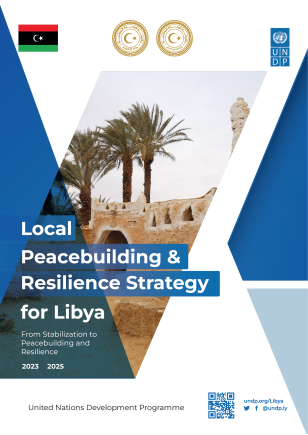Local Peacebuilding and Resilience Strategy for Libya
Local Peacebuilding and Resilience Strategy for Libya
June 22, 2023
Libya faces a range of continuous threats to peace, justice, and the creation of strong inclusive institutions. Implementation of the 2021 Libya Political Agreement (LPA) is slow, with significant contentious issues impeding elections, ongoing institutional fragmentation, and the emergence of a parallel cabinet. Slow implementation has stymied the institutional reforms necessary to reduce tensions across the country, with government highly centralized and personalized, a reliance on subsidies and salaries to maintain public support, and the absence of a national development planning framework. Poor progress with the LPA and governance reforms reinforces widespread corruption and low levels of transparency, a hybrid security sector and the weak rule of law, unaddressed human rights abuses, and restrictions on the civic space, especially for women.
Recognizing the national political impasse, and local needs, UNDP’s new Country Programme Document (CPD), contributing directly to the UN Sustainable Development Cooperation Framework for 2023–2025 agreed with the authorities, proposes to invest in peacebuilding and resilience at a local level, where state legitimacy can be built and where international aid can strengthen the resilience of Libyans, especially for the most vulnerable.

 Locations
Locations